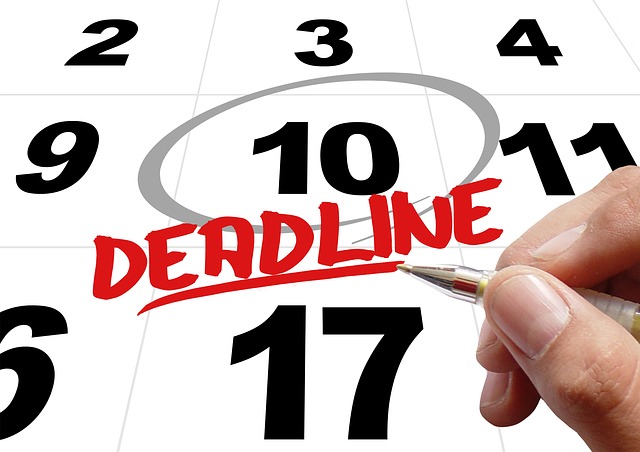I can’t stand articles that begin with a definition. So please, forgive this imperfect opening to what should really have been a perfect article.

Most definitions of the term “perfectionist” agree that it describes someone who “refuses to accept any standard short of perfection”. I feel that the colloquial use of the term describes someone who “will be dissatisfied with their work which standards fall short of their perception of perfection”. I think this interpretation reflects how perfectionists, whilst dissatisfied with their work, don’t necessarily ‘“refuse to accept” the outcome, that their high standards typically only apply to their work, and that perfection isn’t an agreed upon standard (in most cases) but more of a personal qualitative perception.
I’ve always found it curious that we use the term “perfectionist” in both a positive and negative light. You might proclaim that you’re a perfectionist with an eye for detail, or that you’re a perfectionist due to the fact that you get hung up on those very same details. So whether we see it as a character flaw, a positive drive, a personality trait or a the result of conscious choice, it’s clear we feel that the drive towards perfection can be both a positive and negative force.

A year ago I had just graduated from college where I was often praised for my eye for detail (or perhaps that should be “ear”). Whether working on projects for a class, a local filmmaker or a game developer, I found the more I pruned and nitpicked my way through my work (the closer the outcome was in my eyes to near-perfection) the happier my professors and clients were with my work. As such, I saw my desire for perfection as an asset, something I shouldn’t fear nor restrain. In my first year out from college however, I unwittingly allowed that same desire for perfection to hold me back from:
- Implementing an improved backup system
- Worktaping and adding metadata to my growing collection of field recordings
- Updating my website and portfolio
- Writing more articles
- Creating video tutorial content
- Learning a new musical instrument
Why did my perfectionist drive that had led me to many a successful outcome in both college and professional work cause me to fail in these tasks? I believe the answer is because all of those tasks share something key in common; zero accountability beyond myself.

“The ultimate inspiration is the deadline.” – Nolan Bushnell
Give me a deadline, a client, a product with a launch date and I have no problem working fast and to a high standard with a crucial understanding of the limitations that come with the work whether that be time, budget, equipment, my personal ability or whatever else. I can get my work done to the level it needs to be, and time allowing, take it as far beyond that point as I can before I come up against some constraint that requires that I move on. In the end I’m usually pretty happy with the results because I factor these constraints into my perception of perfection.
Unlike my college or client-based work, the tasks listed above had no practical constraints. As a result, my perception of perfection was not restrained and in my eyes, I had no excuse not to carry them out an impossibly high standard. Any other outcome would be seen as a failure. It was this mentality, this desire to avoid failure that caused me to fail to do anything at all.

My behavior and approach to all these tasks reflect this; I would spend too much time calculating, planning or waiting for prime conditions to be met instead of taking action. Whilst I would identify imperfect paths I could have moved forwards on, I always waited for an improved path to explore.

When it came to implementing an improved backup system for my computer, I told myself I should first completely reorganize and clean up all of my current files and folders including organizing my photos, duplicates, unwanted media and future-proofing college and professional work as I had rationalized that the backup wouldn’t be perfect unless I had optimized everything that was being backed up in the first place. I also had a goal of double-redundancy (where everything is backed up twice allowing any two drives to fail) which I kept trying to plan out with the limited set of drives I already owned. I argued with myself that I should just buy some more drives and backup my data in it’s current condition, regardless of how it was organized. Had I done that though, I knew I would have been dissatisfied with the result and I couldn’t justify spending so much time and energy into what I saw as a temporary fix. Eventually I relented and took steps forwards as I realized I had gotten to a point where the dissatisfaction over not taking any action had outweighed the dissatisfaction I would feel towards this less-than-ideal solution. I know, I know, crazy right!

My personal SFX library is a collection of sounds I’ve been adding to for years. When I started, I did so without any idea of how to organize them. Files from my device would rarely get renamed or edited and I had no sense of how one would even start to organize such a collection in a professional manner. As I learned more about the process (what metadata was, different methodologies when it came to organization and the tools available) I felt an increasing pressure to find the optimal method and not to begin the process until I had done so. I was sensitive to the fact that I was likely to keep learning new and improved methods of cataloging my collection, and that any attempt to do so at the present time, would need to be overhauled in a years time. Instead of doing very basic things like renaming files and putting them into folders (some halfway measure to make them more readily usable in the meantime), I just kept adding to the pile of sounds while continuing to plan the perfect way to carry out that task.
That principle of not being satisfied with half-measures carries through to my website and portfolio. Creating the website from scratch was a relative breeze. I had a blank canvas and knew how I wanted to fill it. Just a month ago however, I decided I really needed to update my portfolio content. Unfortunately, I convinced myself that before doing that, I should overhaul the site design, text and page flow (including custom CSS to bend the Squarespace template to my will). Thankfully, I’ve since managed to get past that first self-erected hurdle, and now I can focus on the portfolio. For this to be done in a “perfect” manner, I can’t simply upload some recent tracks. No, I must revisit my entire back catalogue of work, planning which content will be added, taken down and reassigned. I have to decide what goes into the video reels, what goes up as straight audio and how it will be mastered for the web. In contrast, If I have to put a portfolio or reel together for a job application, I have no problem getting that done because I have a time-frame within which it must be completed.

It’s this element of zero accountability that’s at the core of these failings and my personal life is prone to this issue as well. For instance, if I’m cleaning the apartment, I can’t clean a single room, if I start one, you can bet the whole place will be cleaned. It also trips me up when I make purchases. Last month I spent four hours booking a single flight to NYC. That’s almost as long as the flight itself would take! I checked multiple airlines, hub sites that compare rates, seeing where I had frequent flyer points I’d probably never use to add to. In the end I saved myself no more than $50 booking a flight which I shouldn’t have spent more than ten minutes on, but instead I waste hours trying to save pennies (or cents if you like) because if I see the same product/service elsewhere for less, I feel a pang of dissatisfaction.

The issue isn’t pervasive throughout my life however. I have a fienceé and a former roommate who are perfectionists when it comes to video games. While I can progress through a game on whatever difficulty gives me the most satisfaction, partaking in additional quests on occasion but feeling no need to reach 100% completion, my old roommate is driven to “beat” the game. “They wouldn’t put it in there if you weren’t supposed to find it!” he would tell me as he collects seemingly useless items in Zelda. Similarly, my fienceé isn’t satisfied until she gets her three stars or gold medals on every level within whichever casual game resides on her tablet.

Clearly one of the issues I have is that I measure my success solely off of the end result, and not the whole process. I fail to factor in the time and energy spent in reaching my goal. It’s cost-benefit analysis without the ‘cost’ part. My rational self (as you do) knows this is all crazy. I know half-measures are better than nothing, that my time is better spent producing content, meditating or going for a run than spending four hours trying to save a few bucks on a flight. Simply knowing though it isn’t enough to purge this drive from my system, and besides, there are times (as I noted) when it has a positive impact on my life. My challenge now is to catch myself when I see that my perfectionist drive is leading my down the path of diminishing returns so that I can rationally challenge it and move forwards in some, any direction.

I have one last thing to say on this subject. Given that we as creators can’t fully account for everyone’s tastes (and their measure of perfection), should we always strive tirelessly towards our own perception of perfection? You could argue that you can only really create for yourself or that process and drive are a large factor in determining the quality of ones work, but I think there’s something to be taken from Woody Allen’s approach to filmmaking. I watched a documentary last year in which Woody Allen described how he purposefully moves from one film to the next before the critics get their hands on it. By the time the scathing or admiring reviews come out, he’s consumed by his next film and neither bemoans the bad nor allows the good to inflate his ego. So I suggest you consider letting others be the judge whilst at the same time ignoring their judgement. Let others worry about their perception of your work while you focus on putting the next piece out there, and as you do so, keep in mind that your version of perfection probably won’t match up to everyone else’s.
Now if you’ll excuse me, I’m going to spend the next several hours seeing if I can’t move this article closer to perfection.
Great article Richard, and one that I imagine is familiar to many people in this area. I know it is very familiar to me at least. And very well timed since I’m reading this while carefully re-organizing my whole archive of university projects I’ll probably never open again.
Hey Claudio, glad you took something from the article. Having recently graduated myself, I know exactly what you mean. I hope you find the right balance between organizing your old work and producing new work.
Very Good article !!! :)
Thank you !
Very eloquently put Richard. From now on “half-measures are better than nothing” will be my motto.
Haha, that sounds a little defeatist to me. I’d try something like, “one step forward is better than two steps planned” or something like that, but whatever works for you. Glad you got something out of the article.
Thank you so much for publishing this article. I’m exactly the same way, and it’s a relief to know that there are other people who are continually climbing their way out of Pre-planning Hell.
Things like Microsoft OneNote and Lifehacker RSS Feeds can be massive time-gobblers for “completionists” like me. And instead of just DOING something, I waste countless hours planning to do them (or worse, planning to LEARN how to do them), creating checklists and timelines, setting tasks with reminders for the smallest of things, etc.
Life is so short, and there are too many things that I’m genuinely interested in… which only compounds the problem. After reading your article, I made a decision about a couple of things: first, I’ve already got a very broad skill set and it would be wiser to focus on improving the things I already know how to do than learn brand new skills (like programming 3D animation, ugh).
Second, I need to re-arrange my thought process on tasks that I already know how to do: do it first, then improve it later if needed. For example, I can update my resume without reading every Monster.com article I’ve saved; then, if I happen to come across another article in the future I can just apply the advice at that time. It’s time to unload some of these massive burdens!
Aaron, sounds like you could have written the article yourself! Glad it resonated with your own experience. It’s as comforting to me as it is to you that other people have this same experience.
Great article, all that sounds so familiar to me … ! :-)
This article made me laugh! It was like someone writing a perfect (pun intended) description of my personality traits.
Ive actually just started exploring sound design after spending a few years engineering and exactly as you said have spent hours researching what I need to do or learn and far too little time actually doing it.
Thanks for the inspiration to actually do something!
Perfection is an idea that will drive you mad to try to achieve.
Whenever I’m feeling bad about what I do or my work, I remember that everything was bad at one point.
Pixar always says that every movie they’ve ever done has sucked at a point during production.
Even Star Wars was awful when its first draft was completed.
But doing iteration after iteration, revision after revision, makes all the difference.
And striving for the best you can be should be the goal.
‘Perfection’ will drive you mad… I’ve been there, it’s exhausting!
Thanks for the article, Richard!
Beau